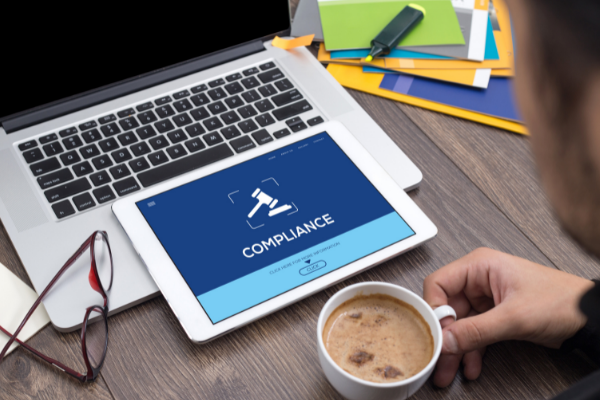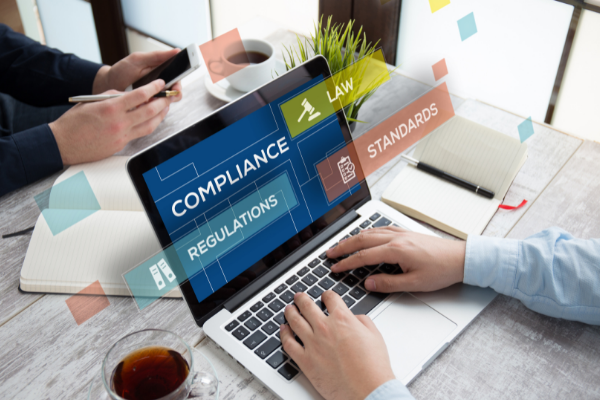BY:
SHARE:

On Friday, 16th May 2025, the ECJU (Export Control Joint Unit) communicated via Notice to Exporters 2025/15 that the process for applying for an F680 (MOD Security Approval Form 680) will be transferred from SPIRE to the replacement portal. The new licensing system was previously named LITE, Licensing for International Trade and Enterprise, but the Notice advises that “apply to export controlled goods” is the new name.
F680 applications will be the second service available on the new portal, which was launched as a “Public BETA” in September 2024 to enable users to apply for a SIEL (Standard Individual Export Licence), with some exceptions, meaning an application on SPIRE was still needed.
Signing onto the new portal, the Account Screen reads that the “Apply” sections cover a SIEL and an F680, although the latter option is not yet live.
If users do not already have an account on “apply to export controlled goods”, the first step is to register at GOV.A UK. One login will be required, along with the ability to access a Security Code via Mobile Phone or an Authenticator App.
The ECJU’s intention is to transition all applications away from SPIRE in the coming weeks, Updates will be provided on Notice to Exporters.
The F680 Security Approval is not an Export Licence. Still, it is an integral compliance document that allows the sharing of equipment or information classified with a security rating of Official-Sensitive or above with non-UK entities. The classification process means that the Ministry of Defence has classified the information or equipment to confirm that a security classification is applicable.
On GOV.UK, there is a link to the F680 Policy and Guidance information, which confirms that approval is also required for some material classified OFFICIAL, but only where the information or equipment connected with the release holds a higher classification. If both the equipment and information are classified OFFICIAL, a Form 680 is not required.
The requirement to check and obtain an F680 is a feature of Military Open General Export Licences, as outlined in the Terms and Conditions. If required, based on the security classification, the F680 must be obtained prior to using the OGEL and be available for inspection during an ECJU audit to demonstrate compliance. To use an OGEL, there is a one-time registration; however, every time the licence is subsequently used, the exporter, as the licensee, must be aware of the associated responsibilities. UK Military Export Licences that permit the tangible export of goods typically require “Open Licence Returns”, which declare the number of licence uses for the calendar year, based on destination and type of end-user.
Compliance and the additional requirements relevant to the Security Classification are another specific example of the licensee’s responsibilities to demonstrate that they are using the OGEL correctly. For an exporter, the ECJU’s expectations and their preparation in readiness for a Compliance Visit are vital. It is recommended to conduct internal audits on a regular basis, rather than waiting for the ECJU Visit. By undertaking regular checks, the official audit can potentially feel less onerous, as the ongoing checks are an integral part of the process. From a compliance perspective, a significant amount of activity is undertaken after the collection of goods from the exporter’s premises, including verifying the customs declaration and obtaining proof of export. We recommend subscribing to HMRC Data for Imports and Exports to check that there are no discrepancies.
In terms of OGEL compliance, the registration process for using the licence could have been completed by the exporter recently or a few years ago. The year after the “GBOGE” Prefix will confirm when the registration took place.
The best advice for an exporter is to be aware of the specific Terms and Conditions to use the licence(s) that the business is registered for. Never lose sight of the responsibilities to use an OGEL. Each use means the exporter is agreeing to the Terms and Conditions.
It is important to be aware that OGELs can be updated, so any changes to the licence should be reviewed to ensure it is still valid for the exporter’s requirements. By using the OGEL, the exporter is agreeing to use the latest version. To demonstrate compliance at audit the best practice approach is to retain any updated versions of OGELs on file.
The one-time registration is a relatively simple process on SPIRE (for the time being) but on going OGEL compliance is imperative.
If you are interested in exploring this topic further, you might find it worthwhile to consider the training courses and live clinics offered by Strong & Herd LLP:
OneCall™ Email assistance as and when required; A one-call solution for all your import, export and customs enquiries. Export help. Import help. Customs help.
Stay informed about customs and international trade matters by subscribing to our OneCall™ service. This comprehensive offering includes a dedicated email helpline for support, timely practical updates direct to your inbox (Did You Know?), monthly UK Customs & Trade Briefings and access to an interactive members' area with an exclusive community for our subscribers.
International Trade Updates & Spotlight Newsletter
Subscribe to our free information emails covering international trade topics...
MORE INDUSTRY INSIGHTS...












